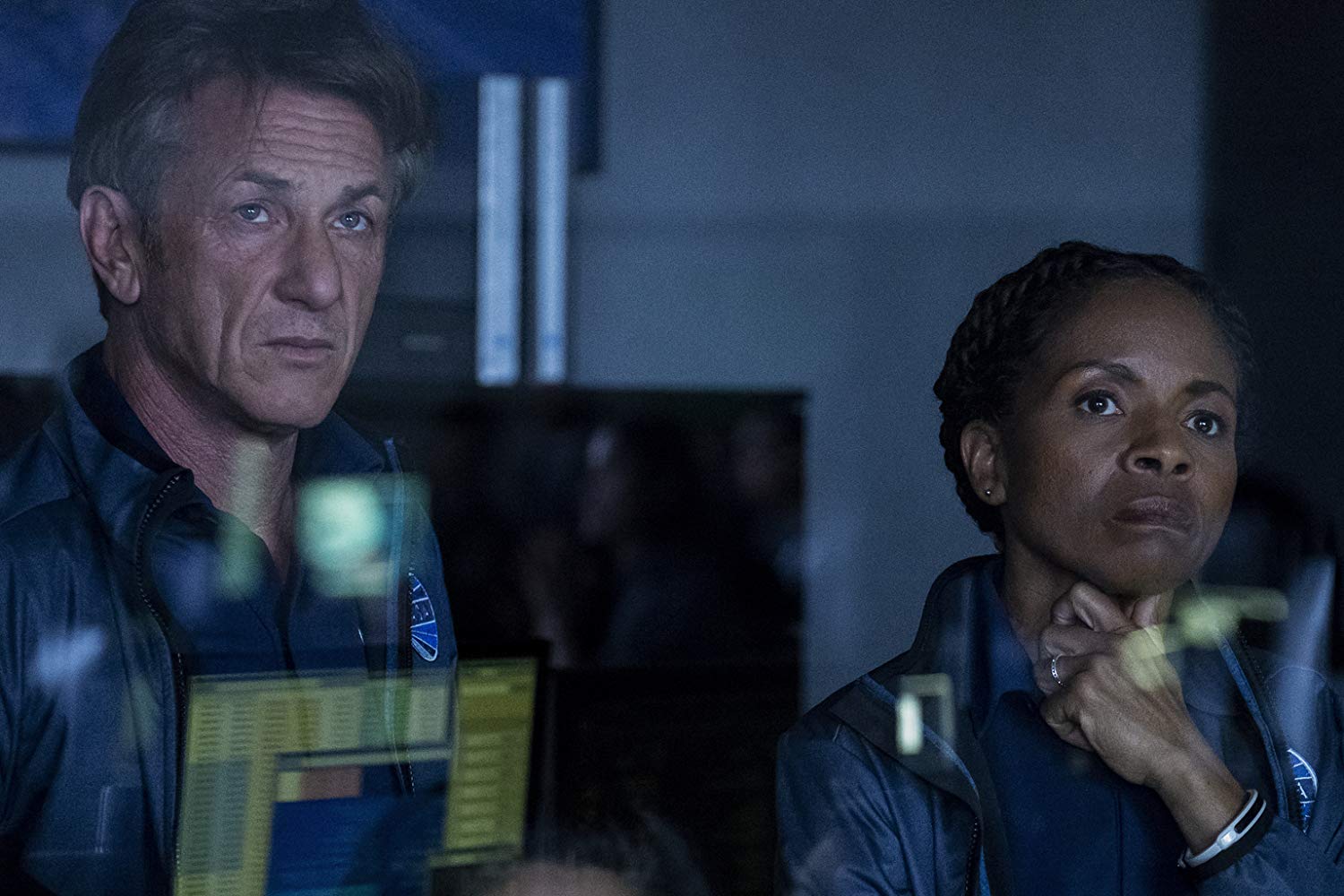Is an eight-episode series worth watching if it is only bookended by greatness? That’s one of many things that Hulu’s new series “The First” meditates on, among its many ruminations in a story of grounded emotions, all concerning pioneers heading to Mars. There’s a lot going on in between those two episodes, including an ambitious take with its visual storytelling that’ll be packaged between commercials, but this series from creator Beau Willimon is not an easy recommendation, however sporadically splendid it may be.
“The First” imagines, with a gentle touch, what it might look like the first time we try to go to Mars. In the first episode, it lays clear the human stakes by showing a jaw-dropping tragedy involving five astronauts and billions of dollars after a launch goes horrifically wrong. Like the best kind of false start for anyone thinking this show would be about floating astronauts, the episode is focused on the grief of the immediate aftermath and how it ripples through the families and NASA employees on the ground. Directed by Agnieszka Holland, this pilot is a standalone depiction of dealing with loss on a micro and macro scale, while introducing us to fascinating key players: Sean Penn’s Tom Hagerty, a intense commander who should have been on that shuttle and wasn’t (for reasons we’ll see later), and Natascha McElhone’s Laz Ingram, who is shouldered with doing damage control while trying to secure funding for the next launch.
Without spoiling: the show’s true Mars mission is eventually assembled and hundreds of minutes later, “The First” returns to its incredible graces by its last episode. “The First” offers its own sense of discovery, lifting us into the air and beyond with our emotions tethered to the ground. It’s an incredibly humane take on space, tender and full of awe, an experience seen as much as it is felt. But were I not intrigued to see whether the show itself was a disaster, I would have aborted by episode four. As someone now tempted to rewatch the whole show, I’m glad I didn’t.

But, the middle: “The First” pulls a bait-and-switch around episode three when it’s trying to pick itself back up, focusing on new, other astronauts, their relationships with their loved ones and their power struggles internally as the second launch day comes closer. At its best, this focus offers tender imagery of brilliant people and their emotional vulnerabilities, like LisaGay Hamilton’s Kayla, as she builds a house with her partner, or Keiko Agena, who is shown navigating her anxieties about her mother having Alzheimer’s. But at its worst, “The First” is like a self-serious project management drama, where Laz and Tom deal with the bureaucracy of the mission. The promise of exploration and a slowly impending launch date only taunt the viewer more and more. Even when the story introduces new life and death stakes in the middle about a Mars rover, it’s not related to a particularly disturbing or thrilling roll of the dice.
Penn is not featured in every episode, but his arc largely concerns that of his relationship with his daughter Denise (Anna Jacoby-Heron, who can well hold her own against the Oscar winner) as they deal with the trauma of his wife/her mother’s suicide. He’s set to go to Mars with the new crew, but he tries to find a peace with her before possibly leaving forever. In an dynamic fifth episode by “Mustang” director Deniz Gamze Ergüven, “The First” shows his problems of facing the past in memory and in the present, as he struggles with his current relationship with his daughter as she carries on her mother’s substance abuse. Together, the two paint a terrifying image of loss, and the worst kind: when you lose someone who is standing right in front of you.

You can see part of what drove Penn to this project: it carries the storytelling values of Terrence Malick’s “The Tree of Life,” which similarly had Penn wandering through a story of overlapping past, present, and future, where he’s just a speck to something bigger than a simple planet. But its cinematography isn’t like Malick so much as the editing, as it freely bounces back and forth in time, or takes a full minute to study the strokes on a painting. For good measure but less success, every now and then there’s the flickering metaphor of a faceless man slowly building a phone. In the scheme of TV, whole chunks of “The First” are downright experimental, especially Ergüven’s fifth episode which provides a lot of backstory as if it played out on a stage, adding to the show’s emotional scope and its intriguing artistry.
Another question that “The First” raises: Can you recommend a series based on its score? The only thing that’s implicitly binge-watch-friendly is the incredible work by Colin Stetson, who “Hereditary” fans will recall was able to open a door into hell with his fluttering, distorted horns and woodwinds. Here, Stetson uses that same arrangement and goes full-Aaron Copland, the results of which might make the driest episodes of “The First” worth watching for the credits.
This is not a series about space, its narrative reminds us so often, so much as to what it would mean for someone to accept the role of a pioneer, and what lives and loved ones they’d be leaving behind. And even with the production design’s dream of new technology, where cars are commanded by voices and memories can be accessed by putting on glasses, it’s a very sobering idea of the near future. Enamored with its characters to a possible fault, “The First” is cut and paced like the roughly 368-minute director’s cut; you can imagine a two-hour film, probably with the same budget, that hits the same emotional beats and divides audiences like previous high-concept sci-fi stories like “Contact” did. As is, “The First” is a noble, ambitious series, but one that demands equally ambitious viewers.












